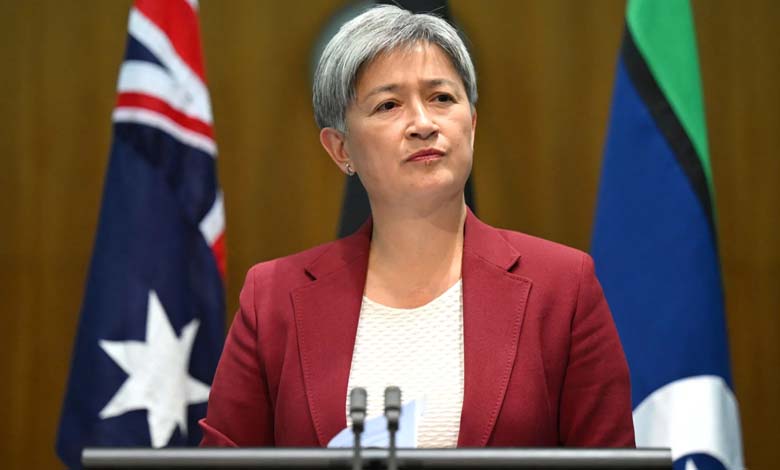Australia criticizes Netanyahu for denying Gaza’s suffering as hunger crisis worsens

The UN has described the surpassing of one hundred child deaths due to hunger as a devastating milestone, a shame on the world that demands urgent and long-overdue action.
Australian Prime Minister Anthony Albanese stated that his Israeli counterpart, Benjamin Netanyahu, is “in denial” about the humanitarian situation in the Gaza Strip, just a day after announcing that Australia will recognize the State of Palestine.
-
How the Muslim Brotherhood Serves Netanyahu Under the Guise of Solidarity with Gaza
-
The Kissufim Truck Overturn: Death Beneath the Wheels of Hunger in Gaza
As political pressure on Israel mounts, the humanitarian crisis in Gaza is worsening dramatically. UN officials have called for immediate action after Gaza’s health authorities reported that over 100 children have died from malnutrition since the war began in October 2023.
On Monday, Albanese said that Australia will vote to recognize the State of Palestine at the United Nations General Assembly next month, a move joining similar announcements from France, the UK, and Canada, and adding to international pressure on Israel.
-
“I collected my son’s remains from the streets” – A mother’s cry in Gaza as Netanyahu hints at escalation
-
From the Battlefield to the Therapist’s Office: Gaza Haunts Israeli Soldiers Without Firing a Bullet
He noted that the Netanyahu government’s reluctance to listen to its allies contributed to Australia’s decision. Speaking to Australia’s ABC network about a phone call with Netanyahu last Thursday, Albanese said: “He repeated to me what he has said publicly — a denial of the consequences faced by innocent people.”
Meanwhile, the UN Office for the Coordination of Humanitarian Affairs (OCHA) reported that its humanitarian partners in Gaza view the crossing of the 100 child death mark as “a devastating turning point that shames the world and demands urgent, long-overdue action.”
-
Stop the Unjust War in Gaza: A Message from 550 Former Israeli Officials to Trump
-
Signed by Over 100 Journalists: International Petition to Break Gaza War Blackout
The World Food Programme has warned that over 300,000 children remain in severe danger, and that one-third of Gaza’s population reported going without food for several consecutive days.
It explained that meeting Gaza’s basic food aid needs requires over 62,000 tonnes per month, yet current deliveries fall far short of what is necessary to keep nearly two million people alive.
OCHA stated that on Sunday, the UN and its partners managed to bring some food, fuel, and supplies, including hygiene kits, through the Kerem Shalom crossing. However, the shipments were offloaded before reaching their intended destinations.
-
Diaries of a Gaza family: waking up hungry and sleeping on broken hope
-
Hungry in Gaza: When Chaos Devours the Loaf of Life
The office also noted that fuel enters through the same crossing, but Israeli authorities allow an average of about 150,000 liters per day — far below the minimum required to sustain life-saving operations.
The Palestinian Civil Defense reported that more than half of Gaza’s ambulances are out of service due to a lack of fuel and spare parts. Last week, the UN Food and Agriculture Organization (FAO) warned that only 1.5% of Gaza’s farmland remains available and intact, signaling an almost complete collapse of the local food system.
During a rare UN Security Council session on Sunday, Ramesh Rajasingham, OCHA’s Coordination Director, described Gaza’s humanitarian situation as “beyond catastrophic.”
-
Gaza’s Humanitarian Crisis Shifts Western Diplomacy Toward Recognizing Palestine
-
Worst-case famine scenario: UN report warns of humanitarian catastrophe in Gaza
He expressed deep concern over the ongoing conflict and reports of further atrocities and casualties, which are likely to increase following Israel’s decision to expand its military operations in Gaza — a move he called “a dangerous escalation in a conflict that has already caused unimaginable suffering.”
Rajasingham added that the few remaining lifelines in Gaza are collapsing under the weight of ongoing hostilities, forced displacement, and critically insufficient life-saving aid.
-
Netanyahu Caught in the Military Trap over Gaza: Generals Rebel, Soldiers Absent
-
What Is the Fate of the Gaza Truce? Hamas Responds to Witkoff
The war in Gaza erupted following an unprecedented Hamas attack on October 7, 2023, which killed 1,219 people in Israel, mostly civilians, according to official figures.
Since then, Israeli strikes and military operations have killed at least 61,499 people in Gaza, the majority civilians, according to the Hamas-run Health Ministry — figures the UN considers credible.












